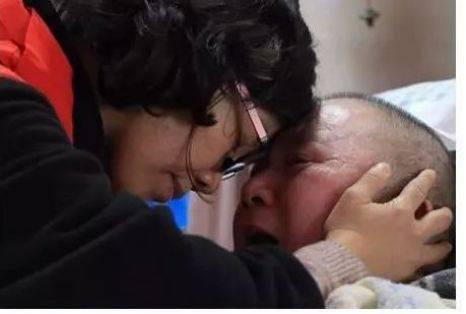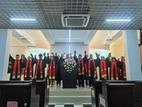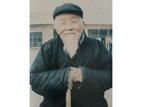To introduce the idea of hospice care, Mr. Li Jianping gave a series of three lectures on the theme of "From Confession to Goodbye" on WeChat.
In the first lecture titled The Moment You Can't Escape: Why Everyone Needs Hospice Care, Li shared that most people were fearful when it came to facing death. The tendency was to avoid thoughts of death and attempt to escape. But sometimes the more we tried to escape, the greater the fear and the greater the pressure was in our hearts. However, if we really faced death directly, the fear and pressure could be less.
In fact, the reality of death was hidden in the depths of our life from the moment we were born, but we did not know when the fear of death would overcome us. Some people compared death to a train ride. On the journey, there were many stops, but one day the train ride would end. And death was a reminder to those who were living; it let us know that life was short and not to be wasted.
Mr. Li talked about how the fear of death impacted us physically. Because of our fear of death, there were many examples of over-treatment. Many people had advanced cancer, and there was no medicine or method to treat it. But because of the fear of death and their desire to live on, they tried radiation, chemotherapy, surgery and other methods, which not only increased physical pain but may also shorten life.
The fear of death also affected us spiritually. Mental stress produced a lot of pain, despair, and increased suffering. There were also some people who could not endure the pain and the stress and chose to commit suicide.
Teacher Li gave an example. His brother-in-law’s father had gastritis for many years and later went to a big hospital to be examined. The diagnosis was stomach cancer. After the lab report came out that day, his brother-in-law hurriedly called his uncles to tell them to visit his father. He told them that his father’s cancer was advanced and there was no treatment. The prognosis was that he had five months to a year to live. His telephone call was accidentally heard by his father. As a result, the old man passed away at 3 am the next morning. How did he die? Not from cancer, but from fear.
A relationship that may be affected was that between the dying and his companion. Sometimes there would be conflict. Because of physical pain and the fear of death, the dying patient was unable to adequately pay attention to the love and care of their companion. If they had a history of conflict and did not understand each other well, they may hurt each other.
Teacher Li also discussed the impact that dealing with financial and legal details has on the patient and family. Because of the fear of death, the family and the patient may not talk about inheritance issues, final wishes, funeral expenses, where burial is to take place and funeral plans. When the patient was completely comatose, he could not deal with these issues and it might cause many problems.
Fear was exacerbated by a lack of knowledge. It was less scary when you actually faced death directly, knowing what it was and how to deal with it. Li shared an example that when Zhuang Zi's wife died, he sat on the coffin and took a pot to sing. He believed that people return to nature from the invisible (before birth) to the tangible (after birth) and then to the invisible (dead), just like the movement from one season to another.
Socrates in ancient Athens once said that for philosophers, death was the final act of self-realization and it was desirable for the soul to leave its physical bonds and go to the kingdom of heaven.
In a 2014 article in the online People's Daily, the famous American psychologist Dr. Raymond Moody tried to uncover the truth of death after studying the cases of 150 persons who had near-death experiences. And what did they experience?
Some heard the doctor declare their death, and felt extreme physical exhaustion. In the early stage of the "near-death experience," persons have a peaceful, serene, and pleasant feeling. At first, they felt pain, but this pain passed quickly, and then they found themselves suspended in darkness. When the soul left the body, they felt happy in spirit, and the pain remained in the physical body.
What were people afraid of when they faced death? First, they were afraid of the pain. Many people who committed suicide were not really afraid of death but the suffering. The second thing they were afraid of the unknown. They felt that the strangeness would bring insecurity and unfamiliarity. Third, they were afraid of being separated from the people and things they loved.
If we taught the dying patient that if they loved others, there was no separation. Love could transcend time and space and could connect them to those they love. With this knowledge, the fear of death might be less.
What kind of help was the most valuable for those facing death? During the most difficult, fearful, and helpless moments, help the dying to gain peace of mind and be able to leave without regret.












